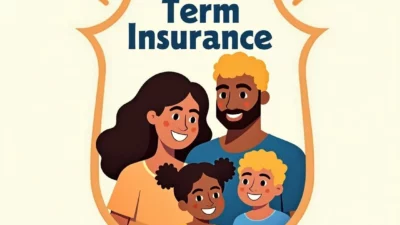Homeownership during retirement can present its own set of unique challenges, but reverse mortgages offer essential financial support to older homeowners by creating income without forcing them to sell their properties. Projections indicate an annual compounded growth rate of 15 % between 2021-2026 of reverse mortgages as an avenue to providing retirement income security.
However, what is a reverse mortgage, and who can obtain one? This blog post aims to explore these questions in detail, providing insight into the eligibility criteria. By understanding these requirements, you can make a more informed decision about whether a reverse mortgage aligns with your retirement aspirations.
Join us as we discover paths leading towards qualifying for this form of loan, helping you enjoy your golden years with ease and peace of mind.
What is a Reverse Mortgage Loan?
Reverse mortgages work on a similar basis as traditional loans. When homeowners borrow money against their homes, they use the property itself as security or collateral. Like typical loans, even if someone has taken out a reverse mortgage loan, they still own the home.
Different from standard mortgages, reverse mortgages do not need you to pay back money every month. The loan will become due when the borrower changes their place of living, sells off the home or passes away. Interest and charges get added over time; but, those who own homes with reverse mortgages must handle property tax, insurance payments as well as house maintenance costs while they continue using it as their main residence.
Age Requirement
Homeowners applying for reverse mortgages must be at least 62 years old to meet eligibility requirements. This provides elderly populations with more comfortable retirement experiences through financial support and relief services, so they can pay for medicine, renovate their home to meet their needs, and other necessary requirements.
Primary Residence
To apply for a reverse mortgage, individuals must remain living in their homes, as collateral. Eligible properties comprise single-family homes, properties with two to four units (provided they own at least one unit), mobile homes built after June 1976, and condos approved by the FHA. Investment or vacation houses do not meet these eligibility criteria.
This regulation protects the program’s integrity and emphasizes helping senior homeowners by guaranteeing that reverse mortgages continue to be an option for people who want to use their primary residence as collateral for financial security throughout retirement.
Equity Requirements
Homeowners looking into reverse mortgages must possess significant equity in their homes. Ideally, this would include being sole owners or having only small mortgage debt that they could pay off with money from the reverse mortgage at closing. Lenders might set different equity requirements depending on factors like lender policies and the age of the youngest borrower involved.
Standard industry practices suggest that at least 50% equity in your home is an ideal starting point for eligibility when considering reverse mortgages. This regulation recognizes reverse mortgages’ use as an efficient financial strategy for savvy homeowners who have made substantial investments in their residences over time.
Financial Requirements
Before they can secure a reverse mortgage, all borrowers are required to attend mandatory counseling with a HUD-approved counselor. This session helps borrowers gain an understanding of all of the complexities surrounding reverse mortgages as well as obligations and possible alternatives available. One key rule of reverse mortgages requires that borrowers regularly cover property taxes, and homeowners’ insurance premiums, and maintain their property to prevent loan repayment and the potential home loss.
To assess borrowers’ ability to meet these financial commitments, HUD mandates a financial evaluation. Depending on the assessment outcome, some borrowers may need to allocate a portion of their loan proceeds to cover these expenses. This designated amount is reserved in a life expectancy set-aside (LESA), functioning as an escrow account for these funds.
Property Standards
Image source: Pexels
For a reverse mortgage to be approved, a home must meet certain flood and FHA property criteria, with any major repairs needing to be addressed either before or during the reverse mortgage application process.
Types of Reverse Mortgages
Prospective borrowers must become informed on all available types of reverse mortgage loans, which include single-purpose reverse mortgages, proprietary reverse mortgages, and home equity conversion mortgages (HECMs). Of these loans, HECMs stand out with additional federal coverage providing extra layers of security to borrowers.
Single-purpose reverse mortgages are usually offered by state or local government agencies or non-profit organizations tailored for specific uses such as home repairs or property tax payments, making them an ideal financial solution for targeted needs.
Proprietary reverse mortgages, which are private loans, cater specifically to homeowners with higher property values by offering more generous loan amounts unbounded by federal limits. Understanding their options carefully is critical in selecting a product that will best meet both financial needs and goals.
Final Thoughts
Reverse mortgages offer senior homeowners a tax-efficient method to access their home equity, bolstering their retirement income. Yet, responsible usage necessitates meeting specific eligibility criteria. Familiarizing oneself with these requirements helps homeowners assess if a reverse mortgage suits their financial objectives.
As with any significant financial decision, however, professional guidance can be useful in understanding all its complexities.

Lexy Summer is a talented writer with a deep passion for the art of language and storytelling. With a background in editing and content creation, Lexy has honed her skills in crafting clear, engaging, and grammatically flawless writing.



